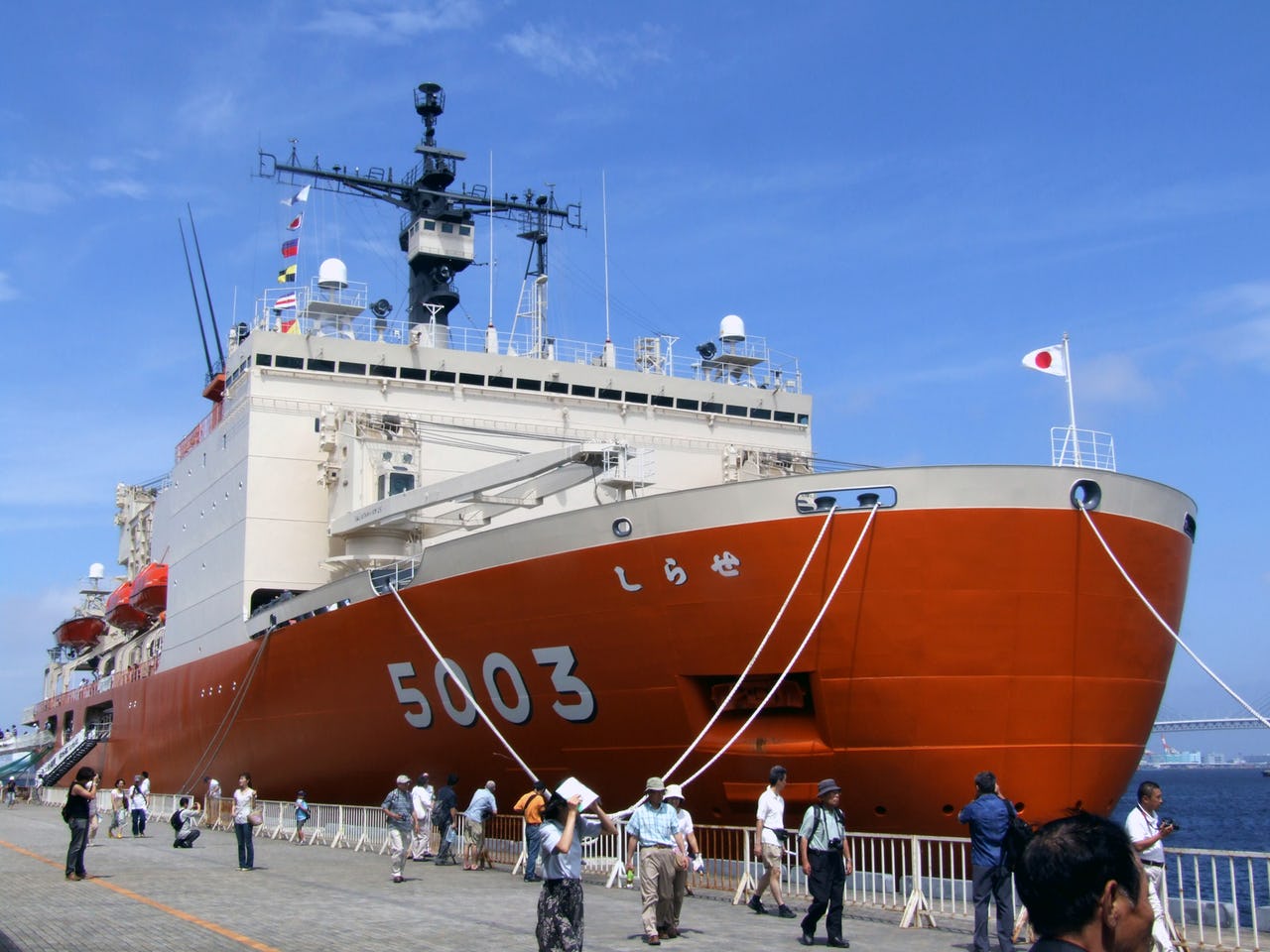Review: Arctic Governance and Japan’s Foreign Strategy

Japanese Icebreaker Shirase. Photo: Toshinori Baba
The Japan Institute of International Affairs (JIIA), a private Japanese policy think-tank focused on foreign affairs and security issues, released a report on Arctic Governance and Japan’s Foreign Strategy. The institute has traditionally had a close relationship with the Ministry of Foreign Affairs, acting as an external advisor. Every year, the Ministry commissions a series of project reports from JIIA containing policy recommendations on specific topics. The most recent report focuses on the Arctic and is based on seven workshops held with selected experts in international law, shipping, defense, and international relations. At present, the report is not available in English and this article summarizes the main content of the report.
The 97-page report, written in Japanese, is divided into 8 Chapters covering various aspects of the Arctic. While the report has not garnered much attention outside of Japan, it stands out as one of the first ‘official’ Japanese reports on the Arctic from an organization closely linked to the government. The Japanese government has not released an Arctic strategy, but the commissioning symbolizes the government’s attempt to gather opinions and understand the topic. There has been ongoing discussion about the Arctic in various business sectors and academic fields, and the report closely mirrors these views. In this regard, the report is not ground-breaking but should rather be understood as a comprehensive analysis of the general mood of the current and potential Arctic actors. It includes detailed data and analysis, which will be especially valuable for Japanese policymakers.
In Chapter 1, Kazuhiro Nakatani, a renowned professor of international law, gives a general overview of the Arctic ’issues’. He contends that for Japan, the most desirable option is decision-making by the Arctic “stakeholders”; if impossible, decision-making by the Arctic Council would be second best. This is a rather frank opinion considering that Japan has been relatively quiet about what happens if the Arctic Council rejects Japan’s application for Permanent Observer Status, and that the Icelandic Prime Minister has recently suggested a new, more open forum to discuss Arctic affairs.
In Chapter 2, Masumi Kimura, who is a principal researcher at the Japan Oil, Gas and Metals National Cooperation (JOGMEC), reminds the reader why Japan needs to participate in energy developments in the Arctic. Energy development projects are highly profitable for any country that has capital and technology, and Arctic resources could be important for Japan’s energy security as well.
While the overall tone of the report is positive about greater Japanese involvement in the Arctic, the shipping industry is not shy in voicing its cautious stance. The Japanese shipping industry has been skeptical about the economic feasibility of the use of the Northern Sea Route (NSR). Chapter 3, by two people from major Japanese shipping companies, stresses that it is still more expensive to use the NSR for container shipping: “There is no reason to use a shipping route if it does not make economic sense, even if it is the shortest route…shipping companies do not exist to enhance the national prestige.” (p.30)
In Chapter 4, Hideaki Kaneda, a former Vice Admiral of Japan’s Defense Forces, discusses the Arctic and Japan’s defense. Kaneda argues that, in the short-run, Japan should promote the use of Arctic sea routes by the international community. In the medium to long run, however, as a maritime nation Japan must strengthen its independent defense capabilities. It is because as maritime and fishery activities in the Arctic eventually increase, such activities in the Sea of Japan will increase as well, and as a result straits such as Soya, Tsugaru and Tsushima will be more congested than they currently are. Further deepening the US-Japan alliance would be useful for Japan as the US is one of the Arctic 5 and considering its nuclear deterrence capability. Kaneda also argues for taking a multilateral approach and expanding Japan’s maritime defense coalition would be necessary.
The following chapters discuss the environmental problems in the Arctic, Arctic governance, and the relationship between Arctic issues and international relations in East Asia, arguing that Japan must closely watch for possible long-term impacts on Japan’s geopolitical environment as a result of changes in the Arctic.
The report concludes with six policy recommendations for the Japanese government:
- Construct a win-win relationship with Arctic coastal states regarding resource exploration and development;
- Secure appropriate implementation of UNCLOS;
- Build a closer cooperation with the United States on Arctic issues;
- Play a leading role in environmental conservation, using Japan’s knowledge and environmental technology;
- More active Arctic diplomacy;
- Strengthen the government system for Arctic policy, such as establishing an Arctic Headquarters within the Cabinet Office.
It remains to be seen whether the Japanese government will implement the recommendations in full, but both the commissioning and tone of the report clearly indicate that Japan has finally recognized the political importance of Arctic affairs. There are also real actions moving the country in this direction: Just days before the report was publicly released, Japan took a step towards more active Arctic diplomacy, as recommended in the report, and assigned an Arctic ambassador for the first time.
Aki Tonami is a researcher at the Nordic Institute of Asian Studies at the University of Copenhagen.